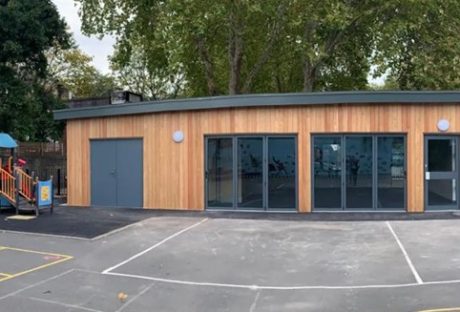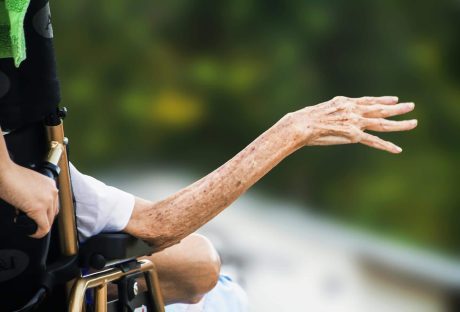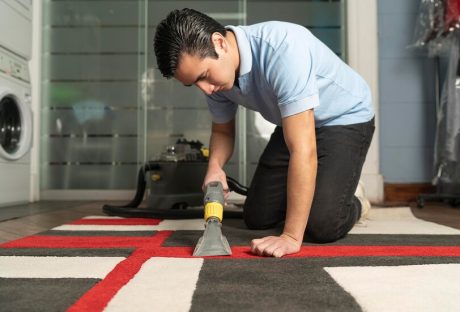As senior citizens age, their energy, mobility, and cognitive abilities decline gradually. This increases the risk of the seniors tripping and falling or developing physical and mental health challenges.
The health and safety risks are higher if they are not in a safe environment or have nobody to care for them.
So, safety and peace of mind are priorities for seniors due to their vulnerability. This explains why many seniors move to retirement communities to enjoy freedom, comfort, and safety with their peers.
But how do senior living communities improve physical security and safety? Do they prioritize seniors’ emotional support and mental well-being? This article will discuss how senior living communities are a safe haven for seniors.
Safety Guidelines to Prevent Accidents
Families with elderly parents wonder if they should entrust the safety of their loved ones to senior living communities.
Moving to a senior living facility means transitioning to a new environment with new residents and caregivers. It also means changing the routine, which could increase safety risks.
However, the management of senior living homes and caregivers develop and follow comprehensive safety guidelines. Since preventing falls is a top priority in the facility, seniors do not have to worry about trip and fall or slip and fall accidents due to unsafe conditions.
The facility has nonslip floors, well-lit walkways, handrails to provide support, and mobility aids to prevent accidents.
Social Environment
Isolation is a common challenge for seniors in their homes, especially living alone at home. However, retirement homes provide social settings, such as standard rooms and dining halls.
This is a place where the residents meet and interact as they eat and watch television. Also, residents can engage in their favorite hobbies or adventure, which fosters social engagement.
Safety and Security Systems and Protocols
The leading senior living communities have security cameras and alarm systems to reduce the chances of something wrong happening to seniors.
The cameras are strategically installed to prevent intruders from accessing the facility and identify residents who might need help around the facility.
The entrances have access control systems that ensure only people with codes or keycards can enter the premises.
The caregivers and security guards undergo rigorous training to understand safety protocols and respond to emergencies appropriately. These measures reduce the risk of security and safety issues that could put seniors at risk.
Medical Management Services
Seniors with health problems might need medication at specific times daily. Since some have memory problems, they might struggle to take the appropriate medicine in the correct dosage. So, they might skip medication or take more than the prescribed dose.
Senior living communities understand the health risks associated with medical prescription issues; they have medical management systems in place.
For instance, they have reminders to help energetic seniors to take medication at the correct times. They also hire trained caregivers to help some take medication, thus ensuring consistency and reducing the risk of health complications.
Support Staff for Every Complicated Task

Some seniors need help with food preparation and cleaning tasks. They can avoid these tasks and allow caregivers and support staff to do everything for them.
Some senior communities also provide transport services to different places so the residents do not have to drive cars or struggle to use public transport.
Senior living facilities create a safe haven for seniors with diverse health and emotional needs. They observe safety protocols and create a social environment with trained staff to address the unique needs of the residents.
With these benefits in mind, seniors reluctant to move to a senior living community can now boldly welcome this hassle-free lifestyle.
Proper At-Home Safety Measurements For Seniors
The senior living community designs are specifically tailored for seniors. They consider things like single-floor living, wide doorways, and hallways, and they take a few steps to navigate to get in and out of the home.
Each of the communities has their own designs. You can find the home safety features such as:
- Providing grip bars inside and outside of showers, bathtubs, and even toilets.
- Ensuring there are no trip hazards or any objects where the seniors might get bumped into.
- Raised toilets.
- Keeping the paths illuminated with bright lights and windows.
- Better flooring with advanced slip-resistant technology.
- Proper safety lock facilities in pools and spas.
- Unique electric controls with better access for wheelchairs.
Apart from these, there are some senior living communities that come with features like intercom access or emergency call systems. There are frequent wellness checks as well, which are mainly conducted by the staff.
Moreover, the communities also provide advanced care needs. They offer better assistance for bathing and moving, helping them to prevent any injuries or falls.
Ensuring Fewer Risks And More Convenience
Another way to help seniors stay safe is to provide a convenient and hassle-free lifestyle. You can find some communities, including dining room meals.
As we know, even basic tasks such as cooking can be dangerous at times. Thus, the seniors, along with their loved ones, seek out communities where they can get a proper home-cooked meal.
There are several other communities that provide services like housekeeping or transportation as well. Not being involved in cosmetic chores can help to decrease the chances of tripping or falling.
There are also some senior living communities that can provide on-site wellness clinics that help the seniors stay healthy. Senior communities with more advanced care need professionals 24/7. In such cases, wellness centers play a huge role.
Ensure better safety of your loved ones!
If you have a senior parent or parents staying in your home and you are concerned about their safety while they are living on their own, then it is time to consider the facilities of the senior living communities.
Start looking for it online, as there are many senior living communities that can provide a healthy lifestyle for seniors while ensuring their safety and keeping them away from harm.
Read More…
- Senior-Friendly Exercise Routines: Enhancing Quality Of Life Guide
- Senior Staircase Safety: What You Need to Know
- 5 Best Ways For Seniors To Pass The Time






















